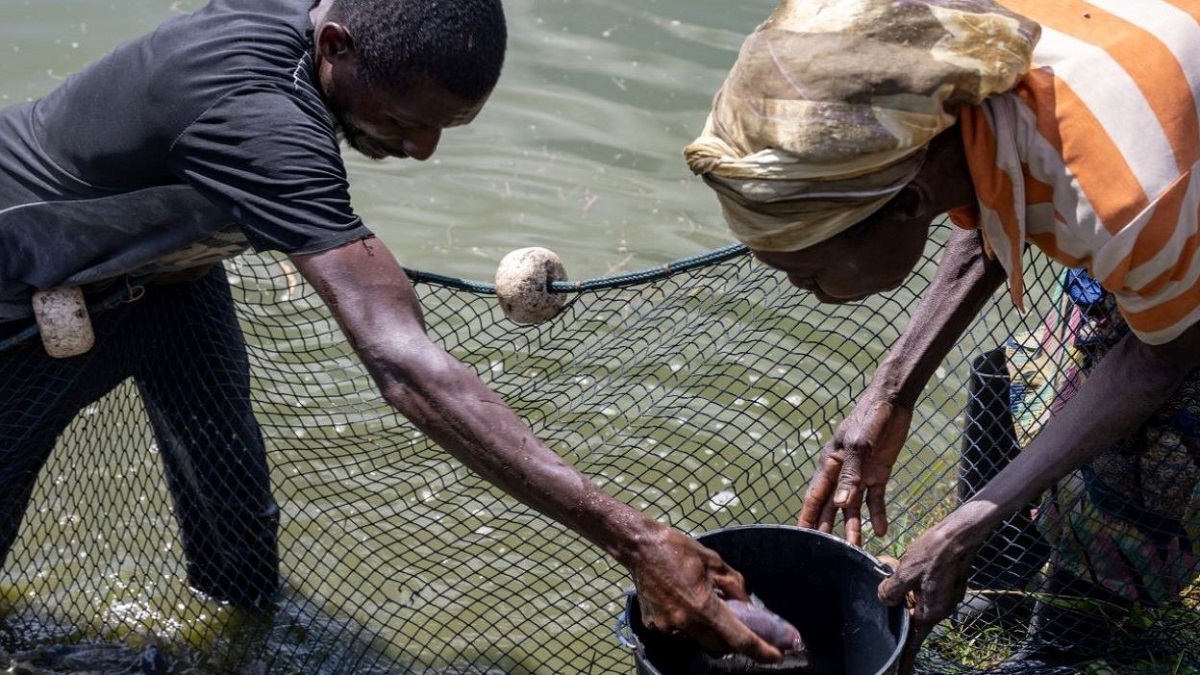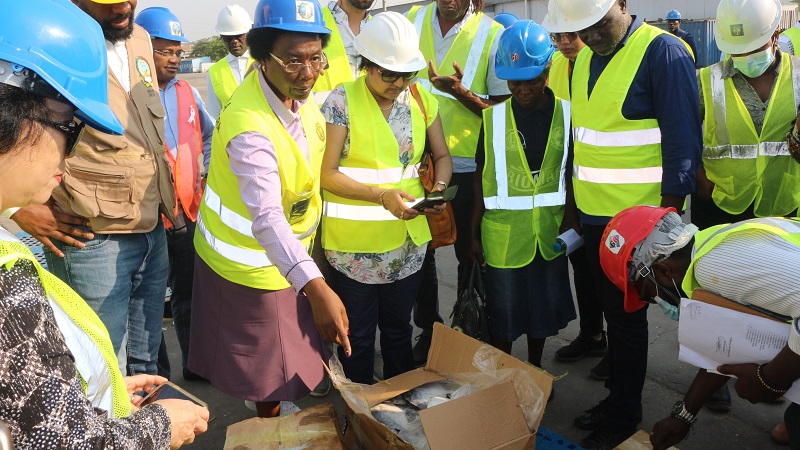UNCTAD supports the nation rich in aquatic resources to diversify its exports through the fisheries and aquaculture sector.
© International Fund for Agricultural Development | About half of the Angola population lives in coastal areas and relies on fisheries for livelihoods.
Angola boasts a vast coastline, ample labour in the fisheries sector and good trading relations with major fish importers in Europe and Asia.
UNCTAD estimates that the ocean economy is worth between $3 trillion and $6 trillion and offers vast opportunities for developing countries to build resilience.
The COVID-19 crisis revealed the potential and resilience of some sectors and the extreme vulnerability of others. In general, exports of ocean-based goods showed remarkable resilience during the crisis, falling by just 3.2% in value in 2020.
With the fish traded globally expected to rise from 187 million tons in 2018 to 250 million tons by 2030, Angola stands to benefit from this opportunity.
Angola overly depends on crude oil, which represents 93% of its exports. Low productivity and meagre opportunities in other economic sectors have left a third of the population below the poverty line. Fluctuating oil prices underscore the need to diversify the country’s economy and exports.
“The fisheries and aquaculture sector can help Angola diversify its economy and move closer to achieving its development goals,” said Paul Akiwumi, director of UNCTAD’s division for Africa and least developed countries.
He said Angola can create more jobs, trade opportunities, boost food security, improve livelihoods and reduce poverty by tapping more into the blue economy – the sustainable use of ocean resources for economic growth.
Vast potential
Angola’s formal fish exports were estimated at $81 million in 2018, mainly consisting of high-end shrimp, crab and tuna, but it can vastly increase the value of its exports.
The fisheries sector accounted for 2.1% of the country’s GDP in 2018, down from 4.6% in 2018. It employs more than 150,000 people.
Nearly half of the population in many coastal areas relies on fisheries for livelihoods and women account for up to 80% of the people involved in artisanal fish processing and marketing.
Constraints to Angola’s blue economy
Several constraints hinder Angola from riding the tide of the blue economy.
The country lacks data on its fish stocks and the capacity to control fishing activities. Also, the fishing and aquaculture sector is mainly informal. Over 90% of the jobs are in small-scale, artisanal fishing.
“If we only produce to combat hunger, we will never move forward,” said Saraiva Santos, president of the country’s aquaculture association.
Besides, the fishing infrastructure is insufficient. Post-harvest losses are high, as the artisanal sector lacks access to potable or clean water, electricity, ice and storage facilities, roads and cold chain transport to lucrative markets.
Unhygienic post-harvest practices that pose food safety and quality risks are rife, limiting the country’s exports to only on-board frozen fish and seafood, with little to no value addition in the country.
“We need better access roads, modern and clean landing sites, cold storage and fishing products that meet international standards,” Mr. Santos said.
UNCTAD research shows that the country also needs conducive policies and institutions, including laboratories and research facilities, as well as collaboration between government, academia and private sector entities to grow the blue economy.
This is in line with UNCTAD’s call for a global "Blue Deal" to invest in safeguarding marine resources and building a resilient ocean economy that benefits all.
Towards a resilient blue economy
UNCTAD is supporting Angola to build a sustainable, resilient and inclusive blue economy through its EU-UNCTAD Joint Programme for Angola: Train for Trade II.
The programme works on mutually supportive economic policy areas simultaneously, including development of green and creative sectors’ value chains, transport, investment, entrepreneurship, trade policy and trade facilitation.
With European Union funding, UNCTAD has so far trained 2,700 government officials, private sector, academia and civil society stakeholders on how to diversify Angola's economy and exports and integrate it into regional and global value chains through various sectors, including fisheries and aquaculture.
For example, Angola needs to assess fish stocks to get the data needed to effectively control fishing activities and establish total allowable catch, which helps to ensure sustainability.
Enterprises and fishers need to learn modern fisheries techniques and sharpen their entrepreneurial skills. Fisheries must also meet both national and international safety and quality requirements.
Jorge Quituta, director general of Jorana, a fisheries firm in Angola, said capacity-building will enable the private sector to contribute more to the country’s Blue Economy.
He said the sector’s role is currently “very weak”, noting that stakeholders need better guidance, technical and scientific knowledge and practical skills. “UNCTAD’s support in this regard has been indispensable, and we hope to receive more assistance in the future,” he added.
Training leads to action plans, supports policy efforts
Through its flagship capacity-building programme, Empretec, UNCTAD has equipped trainers in the country to conduct entrepreneurial training. It also supports "farming as a business" training for firms operating in fisheries, tropical fruits and honey sectors.
In October 2022, UNCTAD organized a training workshop during which Angolan fisheries stakeholders learned from their counterparts in Viet Nam, one of the top three global sea food exporters thanks to determined policy, capacity-building and investment efforts.
In May 2023, UNCTAD and the International Standardization Organization (ISO) trained 50 Angolan stakeholders on how they can meet the international standards required to increase fish exports to more lucrative markets in Asia, Europe and the United States.
Through these training workshops, authorities and other stakeholders assessed gaps and developed action plans that will feed into a national quality policy for Angola.


